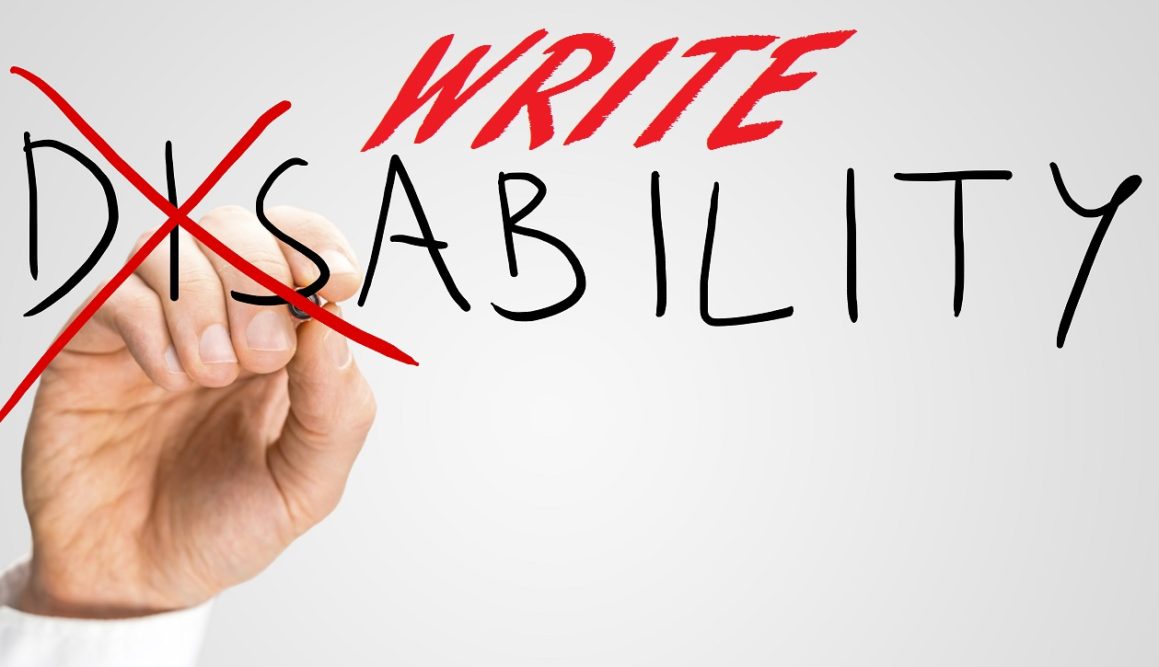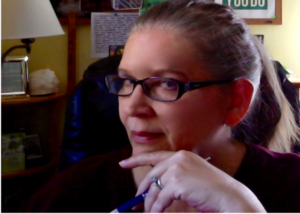The Holy Bible, shows the stigma of disability and the encouragement and inclusion for the disabled, despite today’s protests and advocacy, and how far have we come.
I believe through writing characters with a disability we can encourage a change in the current dynamic.
This month let’s explore the possibilities of disability and writing with another well-known writer, Moses. The first five books of Old Testament of The Holy Bible, and others, like the wonderful story of Job, are believed to be written by Moses. In his grand adventure story in the book of Exodus, Moses writes of his disability in Exodus 4:6-16[NIV[1]]
Then the LORD said, “Put your hand inside your cloak.” So, Moses put his hand into his cloak, and when he took it out, the skin was leprous[2] —it had become as white as snow.
“Now put it back into your cloak,” he said. So, Moses put his hand back into his cloak, and when he took it out, it was restored, like the rest of his flesh.” (Ex 4:6-7 NIV)
Don’t you imagine Moses horrified? Leprosy! Today, we have come up with an additional name for Leprosy, Hansen’s Disease (HD). Leprosy, or HD, is an infectious disease caused by specific bacteria found in drastically poor and dirty conditions. Today, HD can be cured if treated. People may think of groups of sick, rotting-skinned people cast far away when they hear the word Leprosy. There are; however, significantly fewer leper colonies today. India, Africa, and China are places; however, where places segregating people with HD still exist.
I have psoriasis[3]. In the culture and time period of Moses, I would have been examined by a priest, deemed unclean and sent out for seven days. My psoriasis is visible and incurable, but the symptoms are treatable. I would have remained unclean and sent to live outside my community, unable to live, worship, or associate with my peers or family. Thankfully, we now have medical doctors and the knowledge psoriasis is not contagious.
My daughter likewise has psoriasis. After explaining her condition to the school office after her first outbreak (at age eight), her unknowing teacher removed her from the playground. It was a warm spring day and she wore shorts to school. Since the school office failed to inform the teacher and seeing red, inflamed, scaly patches on my daughter’s knees, shins, and elbows, this teacher sent her to the office to sit away from the playing children. The teacher was afraid my daughter had some hideous contagious disease. The office called me to pick up my daughter at school. You can imagine how upset I was when I arrived to find out why.
The shame and heartbreak for my child! The awful confusion and embarrassment she must have felt in realizing for the first time she was different. I want to think times have changed but unfortunately, I see things like this all the time.
Giving a character a trait like psoriasis, for instance, you can show situations and feelings not only for the character but for those unfamiliar with it and their reactions as well.
Further in Moses’ writings in verses ten through twelve, we find out Moses has a speech impediment.
Moses said to the LORD, “O Lord. I have never been eloquent, neither in the past nor since you have spoken to your servant. I am slow of speech and tongue.” (Ex 4:10 NIV)
Even though Moses had been raised with the best of education as royalty in Egypt, somehow, he was aware of his difference from others. It is thought he may have stuttered or had some other form of speech impediment. I imagine he was mocked, made fun of, or ridiculed at points in his life creating lowered self-esteem and self-confidence.
The LORD said to him, “Who gave man his mouth? Who makes him deaf or mute? Who gives him sight or makes him blind? Is it not I, the LORD?
Now go; I will help you speak and will teach you what to say.” (Ex 4:11-12 NIV)
I have a great fondness for verse 12 and I’ve grown closer to the LORD because I know he has plans for me and everyone who has, or may acquire a disability. Here is Moses living with a speech impediment and God is giving him a leading role! Certainly, we as writers can do the same and give a significant role to a character with a disability trait.
But Moses said, “O LORD, please send someone else to do it.” (Ex 4:13 NIV)
Here again is Moses with his lowered self-esteem and self-confidence affirming itself again as he tries to get out of this task the LORD is asking him to do. Moreover, how many of us wait for someone else to write a character in their book with a disability? Perhaps then we won’t have to find out if we can write disability. Personally, I believe anyone can write disability in any genre.
Then the LORD’s anger burned against Moses and he said, “What about your brother, Aaron the Levite? I know he can speak well. He is already on his way to meet you, and his heart will be glad when he sees you.
You shall speak to him and put words in his mouth; I will help both of you speak and will teach you what to do.
He will speak to the people for you, and it will be as if he were your mouth and as if you were God to him.” (Ex 4:14-16 NIV)
The point here is so simple. No person gets through life without help from others. We had parents and teachers in school teaching reading, writing, and arithmetic. We had people to confide in whether it be the LORD, family, friends, or someone else. Help is always available. There are resources everywhere, and yes, people with disabilities are everywhere and many are extremely approachable to answer your questions.
It is written God made man and woman in his own image, and he created each for a reason and a purpose. God did not see Moses as a speech impediment, God saw Moses as His leading character with a speech impediment trait that didn’t matter squat to what needed to be done. God did not see the disability stopping Moses from attaining the goal.
Even if you haven’t read the half-dozen or so books of The Holy Bible thought to be authored by Moses, you probably have heard these stories. As writers, we’ve got an advantage when it comes to sharing similar messages just as God did with Moses. All we need do is make the required changes in our writing.
Main characters need to shine and settle in the minds of readers long after they turn the final page. The actions characters take to achieve story goals must send them toward getting what they want. If not, hopefully, their actions get them to a better understanding of themselves and the world they occupy. This applies to characters in every book. If they don’t then we have a book no one wants to read.
You can create memorable, standout characters with disability traits by seeing your character as a human being first – not an affliction. Do this well and your readers will see them as you do. Already in your mind, you are creating a character with varying traits, so why not add a disability trait to an obvious featured character? Research traits, write what speaks to you as the truth. Observe the world around you. Isn’t this what we as authors do?
Next month I’m taking you on a tour with Part Three of this series: King David, Isaiah, Jeremiah Write of the Sick and Crippled. In the meantime, check out all the fantastic content on writing and the writer’s life at Almost An Author.
Kathryn M. B. Johnson is a wife, mother, grandmother, great-grandmother, and caretaker alongside writing and advocating for disability. Drawn to those with special needs, she spent quite much time in elementary school helping in the special education classroom.
As an adult, after years in the field of accounting software and information technology she started work as an Orientation and Life Skills Instructor at Woodrow Wilson Rehabilitation Center. Here she worked with persons of all types of disabilities and disorders. She believes when God calls us to a role, he needles us as needed to get the job done.
Now, retired and disabled, she has combined her love of writing with a desire to advocate for persons with disability. Kathryn does her best not to get stuck. You can find Kathryn on Facebook, Twitter, or visit her website.
[1] Scripture taken from the HOLY BIBLE, NEW INTERNATIONAL VERSION ® Copyright ©1973, 1978, 1984 by International Bible Society. Used by permission of Zondervan Publishing House. All right reserved.
[2] https://en.wikipedia.org/wiki/Leprosy
[3] https://www.psoriasis.org/about-psoriasis





No Comments